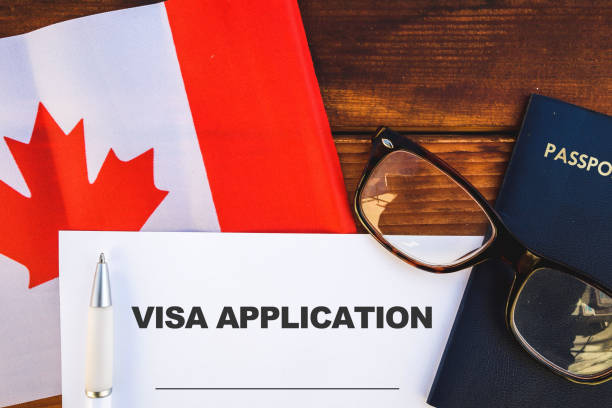Canada Visit Visa Requirements: What You Need to Know Before Applying
Planning a visit to Canada can be an exciting opportunity to explore its stunning landscapes, vibrant cities, and rich cultural heritage. However, before you can embark on your journey, it’s essential to understand the requirements for obtaining a Canada visit visa, officially known as a Temporary Resident Visa (TRV). This visa allows you to enter Canada for tourism, family visits, or business purposes, ensuring that you comply with the country’s immigration regulations.
Applying for a Canada visit visa involves several important criteria that you must meet to qualify. From having a valid passport to demonstrating your intent to return to your home country, understanding these requirements is crucial for a successful application. In this guide, we’ll break down the key elements you need to consider before applying for a Canada visa, ensuring you are well-prepared for your trip.
Here are some Canada Visit Visa requirements: What You Need to Know Before Applying
Basic requirements for a Canadian visitor visa
To be eligible for a Canadian visitor visa, you must meet several key requirements. Here’s a detailed look at each one:
1. Valid passport or travel document
Your passport is your primary identification and must be valid for the entire duration of your stay in Canada. Ensure that it has at least one blank page for the visa sticker. If you hold a travel document instead of a regular passport, it must be recognized by the Canadian government.
2. Good health
You should be in good health when applying for a visa. While not all applicants will require a medical examination, you may need one if you plan to stay for more than six months or if you have a medical history that raises concerns. It’s advisable to consult a healthcare professional to ensure you’re fit for travel.
3. No Criminal or Immigration-Related Convictions
A clean criminal record is essential for your visa application. Any past convictions, particularly those involving serious crimes, may result in your application being denied. Additionally, any immigration violations in Canada or other countries can also impact your eligibility.
4. Strong Ties to Your Home Country
You must demonstrate strong ties to your home country, such as employment, property ownership, or family connections. These ties reassure immigration officials that you will return home after your visit. Providing documentation like job letters, property deeds, or family statements can strengthen your application.
5. Intent to Leave Canada at the End of Your Visit
You must show that you plan to leave Canada at the end of your visit. This can be proven by providing a detailed travel itinerary, flight bookings, or any arrangements that show you are returning to your home country. Immigration officials need to be confident that you do not intend to overstay your visa.
6. Sufficient Funds for Your Stay
You are required to show that you have enough financial resources to support yourself during your visit. This can include bank statements, pay stubs, or proof of assets. The amount you need varies depending on the length of your stay and your planned activities in Canada, but it should cover accommodation, meals, transportation, and any other expenses.
7. Proof of Travel to and from Canada
Providing proof of your travel plans is crucial. This includes your flight itinerary, hotel reservations, or any other travel arrangements that support your planned visit. It’s advisable to have flexible or refundable bookings, as your plans may change during the application process.
Application Process: Online vs. offline
Once you ensure you meet all the requirements, you can apply for your Canadian visitor visa through two main methods: online and offline.
Online Application
Applying online is often the quickest method. To do this, visit the official website of the Government of Canada and create an account on the Immigration, Refugees, and Citizenship Canada (IRCC) portal. Here are the steps:
- Complete the application form: Fill out the required forms accurately.
- Upload Documents: Submit all necessary documents, including proof of funds, travel itinerary, and any supporting letters.
- Biometrics: If required, you may need to provide biometrics (fingerprints and a photo). You can pay the biometrics fee online and then visit a local center to provide this information.
- Pay Fees: Pay the processing fee, which is typically around CAD 100 for a single-entry visa.
- Submit Your Application: Review everything before submitting.
Offline Application
If you prefer to apply offline, follow these steps:
- Visit the nearest Visa Application Center (VAC): Locate a VAC in your area and collect the application forms.
- Fill Out the Forms: Carefully complete all forms.
- Gather Documents: Compile all required documents, ensuring you have copies.
- Submit Your Application: Go to the VAC, submit your application, and pay the applicable fees. The VAC will then send your application to the Canadian visa office.
Conclusion
Obtaining a Canada visa is a vital step in making your travel plans a reality. By ensuring you meet all the requirements—such as having a valid passport, proving your financial stability, and demonstrating strong ties to your home country—you can enhance your chances of a successful application. It’s important to take the time to gather all necessary documentation and be thorough in your application process, whether you choose to apply online or offline.
As you prepare for your journey, remember that the Canada visa process may require patience and careful planning. By understanding the key requirements outlined in this guide, you’ll be well-equipped to navigate the application process with confidence. With the right preparation, you can look forward to an unforgettable experience in the diverse and beautiful landscapes of Canada.
Also Check Out: Ethiopia Visa




